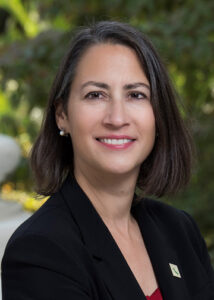California Must Hold the Line to Protect Wetlands from a Devastating Supreme Court Decision
California is many things: it is the land of massive cities and sprawling highways but also home to some of the most pristine wilderness that still exists in the contiguous United States. From Joshua trees to giant Redwoods to the Bolsa Chica wetlands, California is rich in our remaining wilderness. Protecting it is important for our economy, for our quality of life and our climate future.
All of our wilderness is threatened. Indeed, 157,000 species currently sit on the endangered species list. Our deserts, forest, oceans, chaparral, riparian habitats and wetlands all face perilous futures as do the flora and fauna that call them home. Teetering on the brink, though, our wetlands are being lost at three times the rate of our forests. And it is not just early settlers that clear cut land for agriculture, grazing and homesteads to whom we can attribute the damage. Thirty five percent of all wetlands have been lost just since the 1970s. That’s a problem as 40% of our world’s species live in or reproduce exclusively in wetlands. That problem is compounded in California where, due to an historical lack of protection and aggressive development, we have lost over 90% of our historic wetlands and 95% of formerly abundant lagoons and marshes along our 840 miles of coastline, which has led to a massive drop in salmon and bird populations as well as numerous other animals and plants now bordering on extinction due to habitat loss.
Staving off the worst effects of climate change will depend on protecting every last square inch of wetlands that remains. As snowfall in California decreases and our rainy seasons increase, historical flood zones suddenly become of the utmost importance. Wetlands store massive amounts of water. They act like natural sponges, soaking up excess rainfall and preventing floodwaters from reaching neighboring communities, making them critical buffer zones in historically flood prone areas.
Knowing all of this, the Supreme Court took a sledgehammer to the few remaining protections the federal government provided to wetlands in a 2023 Supreme Court decision (Sackett v EPA). In 2008, Michael and Chantell Sackett started building a house in Idaho. The issue at hand was whether or not the couple’s home was located on a protected wetland. All nine justices ruled that it was not. But five conservative justices used that case to obliterate the Clean Water Act by redefining what a waterway and wetland are. The Congressional definition of “wetland” was added to the act in 1977 and remained unchanged and regularly upheld by the courts for decades.
The fallout from the Sackett decision is that at least half of the approximately 110 million acres of wetlands in the contiguous United States will no longer be protected by the federal government. But California can and must protect the wetlands within our borders that the Supreme Court just stripped of their protection. We must hold the line.
Last month, I introduced AB 2875 that requires California to ensure no further losses of wetlands and, instead, supports a long-term gain in wetlands in California moving forward.
The ramifications of Sackett are of such grave consequence in California that, in a very tough budget year, Governor Newsom’s 2024 budget proposal includes funding to maintain protections for formerly federally protected wetlands. California is no stranger to leading the nation in environmental protections. When federal protections falter, we will continue to be steadfast stewards of our wetlands.
What are your thoughts on AB 2875? As always, I’d like to hear your thoughts on our budget, legislation or any general comments or concerns. You can reach my District Office at (818) 558-3043, or by email at Assemblymember.Friedman@Assembly.ca.gov.

